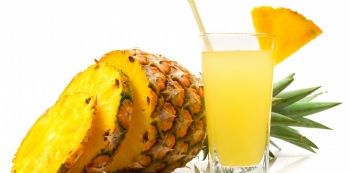
Have you ever been embarrassed by unusual weird sounds coming out of your belly while being a part of a gathering? This is nothing but stomach gurgling, and if you experience this then the ongoing discussion will suit you the best as we are going to figure out:
Before getting into the details of stomach gurgling, I would like to give a brief idea on the digestive process in the human digestive system (for additional information on digestive disorders click here ). The digestive system extends from the mouth to the anus. As we ingest food, it is delivered to the esophagus which carries it to the stomach. In the stomach the gastric juice and acid starts digesting the food. The next destination of the food is the small intestine where most of it is absorbed and distributed to the body. It is where most of the gurgling occurs. Although we call it stomach gurgling, the stomach is actually not responsible for it.
So, gurgling primarily occurs due to the passage of liquid, air and food primarily in the small intestine and occasionally the colon. This process is technically termed peristalsis.
Now the question arises whether gurgling is good or bad. Bowel sounds or gurgling is a physiological process which is considered normal to a certain extent. Gurgling is common to such an extent that 1 in 5 individuals experience it throughout their lifetime. So when reasonable, it is something not to be worried about – but when it exceeds the limit in terms and quantity and intensity be more cautious.
Common conditions leading to gurgling may be:
- Hunger
- Irritable bowel syndrome (IBS)
- Inflammatory bowel disease (Crohn’s disease and ulcerative colitis)
- Anxiety
- Depression
- Excessive fast food intake
- Insomnia
Among these clinical conditions, irritable bowel syndrome is the most common cause of weird bodily noises known as stomach gurgling or boborygmi. Women are affected more when compared to men. The incidence of this disease in women is 13% while in men it is 5%. It occurs when the gut is unable to coordinate and control the peristaltic movements. Despite efforts made by the gastroenterologists, the exact cause of irritable bowel syndrome has yet to be determined.

Irritable bowel syndrome is a symptom complex characterized by:
- Gurgling sounds (borborygmi)
- Alternating diarrhea with constipation
- Pain in the abdomen and cramping
- Bloating and flatulence, usually resolving at night and reappearing the next day
In addition to the gastrointestinal symptoms, an individual may have some associated symptoms like:
- Decreased appetite
- Nausea and vomiting
- Headaches
- Frequent micturition
- Disturbed sleep pattern
There is no clue to diagnose irritable bowel syndrome because it is more of a functional than a somatic disorder. Knowing this fact, patients with the above symptoms must be worked out in order to rule out other serious causes, especially if:
- gurgling sounds become chronic
- blood passes with stool
- there is loss of weight
- there is altered bowel habits lasting for more than 5 weeks
As we’ve discussed the burden of this disease and issues caused by it, I would like to discuss the preventive measures for avoiding this condition. It will encompass irritable bowel syndrome specifically and stomach gurgling in general.
Here are a few dietary remedies for the prevention of stomach gurgling:
- Have plenty of Water – although drinking plenty of water can help you to avoid this condition, take care while consuming water. Tap water contains chlorine or possibly fluorine and these chemicals can actually cause gurgling. So, water must be filtered or boiled properly before using.
- Get a good night sleep – sleeping for a good 7 to 8 hours each night is mandatory for a healthy gut. Decreased sleep reduces the functional ability of the gut and you may experience gurgles, diarrhea or constipation.
- Have a healthy diet – high fiber diet and decreased intake of fast food will help you in alleviating the symptoms associated with irritable bowel syndrome. Moreover, try taking meals in small bits and pieces instead of large meals.
- Avoid beverages – certain beverages, like coffee and tea, may worsen the symptoms and must be ingested with caution. It is advisable to have mint tea after meals as it may help in digestion.
- Avoid using tight belts – tight belts around the waist may cause gurgling and burping in otherwise normal conditions. It is always advisable to keep the belt loose, especially after meals, in order to relieve the belly from undue compression.
- Cut your liquids short – limited liquid intake is an important step in the prevention of stomach gurgling. Studies suggest that excessive liquid intake destroys digestive juices and microflora of the gut responsible for efficient digestion.
- Improve hygiene – both oral and hand hygiene prevents gurgling of the stomach.
A few non dietary remedies helpful in relieving stomach gurgling:
- Regular physical activity, like sports, gym and aerobics, plays an important role in alleviating the symptoms of irritable bowel syndrome
- Stress management makes the symptoms move abruptly
- Quitting the thoughts of digestive problems tends to help from time to time.
Despite all the efforts, if your stomach still gurgles, then one should try some medications like anti-spasmodics, purgatives, laxatives and anti diarrheals.
Source: doctortipster.com
Comments (0)
📌 By commenting, you agree to follow these rules. Let’s keep HowweBiz a safe and vibrant place for music lovers!












